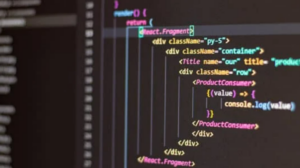As a seasoned coder, I’ve come to appreciate the importance of following coding best practices. In the fast-paced world of software development, adhering to these principles isn’t just a suggestion; it’s a necessity. By implementing best practices, I’ve seen firsthand how they can streamline workflows, enhance code readability, and ultimately lead to more efficient and maintainable software solutions. In this article, I’ll delve into the fundamental coding best practices that every developer should embrace to elevate their coding game and produce top-notch applications.
Coding Best Practices
The Importance of Adherence
 When it comes to coding, following best practices is crucial for several reasons. It ensures consistency in the codebase, making it easier for developers to collaborate effectively. By adhering to these established guidelines, I can increase the readability of the code, allowing me to understand and maintain it more efficiently. Moreover, sticking to best practices helps in identifying and rectifying bugs quickly, ultimately saving time in the development process.
When it comes to coding, following best practices is crucial for several reasons. It ensures consistency in the codebase, making it easier for developers to collaborate effectively. By adhering to these established guidelines, I can increase the readability of the code, allowing me to understand and maintain it more efficiently. Moreover, sticking to best practices helps in identifying and rectifying bugs quickly, ultimately saving time in the development process.
How Best Practices Evolve
Coding best practices are not set in stone; they evolve with technology and industry trends. As I continue to gain experience in software development, I understand the importance of staying updated with the latest practices. Embracing new methodologies and tools expands my skill set and enhances the quality of my code. By constantly learning and adapting to changes in the tech landscape, I ensure that my coding practices are always optimized for efficiency and effectiveness.
Clean and Readable Code
Maintaining clean and readable code is essential in software development to enhance collaboration, debugging, and overall efficiency. As I delve into the key aspects of coding best practices, the following guidelines ensure code readability and maintainability.
Naming Conventions
In coding, consistent and descriptive naming conventions are paramount. I always opt for meaningful variable names that reflect their purpose. By using clear and concise identifiers, such as ‘totalAmount’ instead of vague terms like ‘val’ or single letters, I ensure that anyone reading the code can easily grasp its intent without additional comments.
Commenting and Documentation
Commenting and documentation play a crucial role in clarifying code functionality. I make it a habit to provide insightful comments for complex algorithms or unconventional solutions to guide other developers. Additionally, I prioritize updating inline documentation to reflect any changes promptly. This practice enhances code comprehensibility and simplifies maintenance tasks for myself and my team.
Principles of Good Code Design
KISS Principle
 The KISS (Keep It Simple, Stupid) principle advocates for simplicity in design. As a coder, I strive to keep my code simple and straightforward. Complex solutions may be harder to understand, debug, and maintain. By following the KISS principle, I focus on writing clean and minimalistic code that achieves the desired functionality without unnecessary complexity. Simplicity in code design leads to better readability, easier troubleshooting, and improved overall efficiency in software development.
The KISS (Keep It Simple, Stupid) principle advocates for simplicity in design. As a coder, I strive to keep my code simple and straightforward. Complex solutions may be harder to understand, debug, and maintain. By following the KISS principle, I focus on writing clean and minimalistic code that achieves the desired functionality without unnecessary complexity. Simplicity in code design leads to better readability, easier troubleshooting, and improved overall efficiency in software development.
SOLID Principles
The SOLID principles are a set of five object-oriented design principles that help me write better code.
- Single Responsibility Principle (SRP): Each class or module in my code should have only one reason to change.
- Open/Closed Principle (OCP): Code should be open for extension but closed for modification.
- Liskov Substitution Principle (LSP): Objects should be replaceable with instances of their subtypes without altering the correctness of the program.
- Interface Segregation Principle (ISP): Interfaces should be specific to the needs of the client.
- Dependency Inversion Principle (DIP): High-level modules should not depend on low-level modules; both should depend on abstractions.
Following these SOLID principles helps me write code that is easier to maintain, test, and extend. They promote good practices in object-oriented design, leading to more flexible and robust software systems.